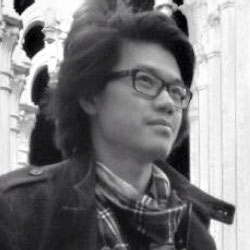In the not so distant past, film composers had classical backgrounds and did not stoop to work in television or commercials––certainly not in video games, whose scores were limited to flatulent beeps and buzzes.
Thanks to modern composers like Danny Elfman, who was an original member of Oingo Boingo; Trent Reznor of Nine Inch Nails and most recently Alex Ebert of Edward Sharpe and the Magnetic Zeros––who bested Hans Zimmer and John Williams to win the Golden Globe for his score to the Robert Redford film All is Lost––times have changed.
Rock songs and films have been in step ever since 1955 when “Rock Around the Clock “ blew up the big screen in Blackboard Jungle. But with the downsizing of the record business, pursuing sync licenses in films and television shows is, for recording artists, an appealing option to endless touring. And the sounds of video games now include everything from rock anthems to chamber ensembles and full orchestras.
In this exclusive feature, MC interviews two composers who come from non-traditional backgrounds to score big budget features; a pair of ambitious young composers making significant inroads in everything from indie films to fashion shows to games; a duo of entrepreneurial business owners who license music for films, television shows, commercial and promos; and a manager who is initiating a “sea change” by marrying his stable of noted electronic composers to film music.
For those who want to explore the art and business of matching music to motion, this ever-shifting kaleidoscope reveals a promising wealth of opportunities.
Compose Yourself
S. Peace Nistades
Contact S. Peace Nistades, http://nistades.com, http://alkaloidemusic.com
Originally from Thailand and raised in an international community, classically trained S. Peace Nistades is conversant in literature, art, fashion and culture. As a composer and creative director with his own Los Angeles-based company, Alkaloide Music Productions, he scores features and short films and creates music for television shows, trailers, video and fashion shows. Additionally, he composes concert works and produces albums. Among his high-profile credits is as the composer of music for the series Dragon Age: Redemption based on EA/BioWare’s Dragon Age games.
MC: What are you working on at present?
SPN: I am wrapping up a score for fashion designer Emily Daccarett’s new collection. This is our third project together. We’re scoring a film and collaborating with the electronic DJ who is taking the score and creating a version of it for the runway. It will premiere at L.A. Fashion Week.
MC: Your projects have spanned six continents so far, correct?
SPN: Yes. I am a big fan of European, International and Asian films. I’ve had a really wonderful relationship with these two great Swedish directors, André Hedetoft and Andreas Climent. I am working with them on my first-ever Swedish feature film.
MC: How do you connect to projects?
SPN: Deadline.com and Hollywood Reporter are sources. I look at trailer websites. I also follow a lot of what is going on in Europe because I love those kinds of films. I believe in going out and trying to find if there is a project that I am passionate about.
MC: You say that you’ve obtained gigs through social media?
SPN: Twitter especially. I’ve actually gotten films through Facebook. I did a short film called The Traveller that premiered at Cannes. The director Musaab AG wrote me a Facebook message from Dubai and pitched the movie. He was in Dubai, I was in Los Angeles, and I brought in a friend Anders T. Røsho who was in Norway to co-write the score with me. We did it over three continents, emailing and chatting online.
MC: Do you also use SKYPE?
SPN: Yes, with André Hedetoft and Andreas Climent. I feel like we’ve become good friends, but we haven’t quite met yet and we have worked together for three years.
MC: How important is it to work with live musicians?
SPN: There is something that you get from working with someone who is the room with you because you feed off of each other. In general, I record all of my scores in Los Angeles regardless of where the filmmaker is. They will often find this a good excuse to fly over here.
MC: You have just turned 25, but your resume is packed with projects. Clearly, you began early.
SPN: I did my first feature, Dark Woods, when I was 19. The filmmakers kept asking me to go out and enjoy a drink with them after the sessions, but I didn’t want to reveal my age so I kept making excuses.











